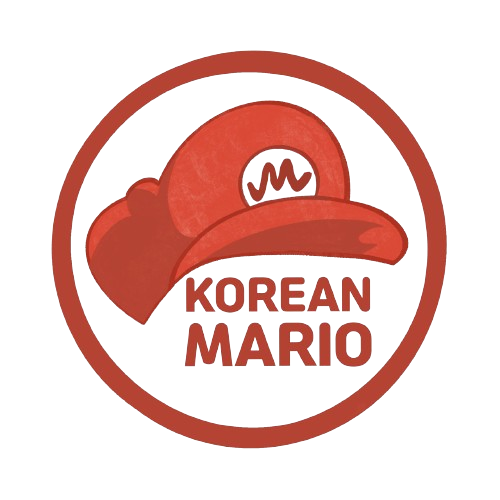👉 Looking to master Korean quickly and naturally? Start learning at koreanmario.com!
Eating in Korea isn’t just about food—it’s a chance to build relationships and show respect. Whether it’s a family dinner, street food run, or dining out with friends, knowing the right Korean expressions can make every meal more meaningful and polite.
In this post, you’ll learn the most useful Korean phrases used during meals, how to use them naturally, and what they reveal about Korean culture.
🔹 Quick Summary
✅ Phrases like 잘 먹겠습니다 (jal meokgetseumnida) and 잘 먹었습니다 (jal meogeotseumnida) express thanks and appreciation during meals.
✅ Ordering at restaurants? Learn polite expressions to interact with staff.
✅ Everyday greetings like 밥 먹었어요? (bap meogeosseoyo?) show genuine care, not just hunger.
1. Common Korean Mealtime Phrases & What They Mean
Whether you’re having home-cooked food or eating out, these phrases help you speak respectfully and connect with others during meals.
1. Before Eating: “Thank you for the food”
Korean: 잘 먹겠습니다 (jal meokgetseumnida)
Literal meaning: “I will eat well”
📌 Cultural context: Used before meals to express gratitude—similar to saying “Thanks for the meal.” It shows appreciation for the person who prepared or provided the food.
📍 When to say it: Right before eating, especially when dining with others.
Example:
- A: 우리 밥 먹자! (Let’s eat!)
- B: 잘 먹겠습니다. (Thank you for the food.)
2. After Eating: “That was delicious”
Korean: 잘 먹었습니다 (jal meogeotseumnida)
Literal meaning: “I ate well”
📌 Cultural context: A polite way to thank someone for the meal after eating. Commonly said in homes, restaurants, or with coworkers.
📍 When to say it: After finishing your meal.
Example:
- A: 식사 맛있게 하셨어요? (Did you enjoy the meal?)
- B: 네, 잘 먹었습니다. 감사합니다. (Yes, it was great. Thank you.)
3. Offering Food: “Please eat a lot”
Korean: 많이 드세요 (mani deuseyo)
Literal meaning: “Eat a lot”
📌 Cultural context: Shows care and hospitality, especially when serving guests.
📍 When to say it: While offering food at gatherings or meals.
Example:
- 이 불고기 정말 맛있어요! 많이 드세요.
(This bulgogi is so good! Please eat plenty.)
4. Wishing Someone to Enjoy Their Food
Korean: 맛있게 드세요 (masitge deuseyo)
Literal meaning: “Eat deliciously”
📌 Cultural context: Similar to “Bon appétit.” Used to wish someone a good meal.
📍 When to say it: Just before someone starts eating.
Example:
- 오늘 추천 메뉴예요. 맛있게 드세요!
(This is today’s special. Enjoy your meal!)
5. Asking If Someone Ate: “Did you eat?”
Korean: 밥 먹었어요? (bap meogeosseoyo?)
Literal meaning: “Did you eat?”
📌 Cultural context: A caring greeting, not just a question about food. Reflects Korea’s past hardships and warm culture.
📍 When to say it: As a casual, friendly way to greet someone.
Example:
- A: 안녕하세요! 밥 먹었어요? (Hi! Did you eat?)
- B: 네, 먹었어요. (Yes, I did.)
2. How to Say “Meal” in Korean
There are two main words you’ll hear:
- 식사 (siksa): Formal word for “meal,” often used in polite or business settings.
- Example: 식사 하셨어요? (Did you have a meal?)
- 밥 (bap): Informal word meaning “rice,” but often used to refer to any meal in casual conversation.
- Example: 밥 먹었어요? (Did you eat?)
Both terms highlight the importance of meals in Korean culture.
3. Dining Etiquette & Phrases for Restaurants
Mastering a few key expressions will help you navigate Korean dining experiences like a pro.
1. Greet When You Enter
Say 안녕하세요 (annyeonghaseyo) when entering a restaurant—it’s respectful and appreciated.
2. Requesting a Menu
Ask: 메뉴 좀 주세요 (menyu jom juseyo)
💡 “좀” makes it more polite—like saying “Could I please get the menu?”
3. Polite Ordering
To order food, simply point to the item and say:
이거 주세요 (igeo juseyo) – “This one, please.”
4. Mentioning Dietary Restrictions
- 못 먹어요 (mot meogeoyo): I can’t eat it (due to allergy/health/religion)
- 안 먹어요 (an meogeoyo): I don’t eat it (by choice)
5. Compliment the Food
Say: 정말 맛있어요! (jeongmal masisseoyo!) – “It’s really delicious!”
6. Ask for the Bill
Say: 계산서 주세요 (gyesanseo juseyo) – “Can I get the bill, please?”
Or if you’re paying: 제가 낼게요 (jega naelgeyo) – “I’ll pay.”
7. Thank Staff When Leaving
End your meal with gratitude:
- 감사합니다 (gamsahamnida) – Thank you
- 잘 먹었습니다 (jal meogeotseumnida) – I ate well / Thanks for the meal
4. What to Learn Next
Ready to go deeper? Check out these resources:
✅ Korean Phrases by Topic – Learn expressions for travel, work, and daily life
✅ Korean Restaurant Guide – Master ordering, etiquette, and common menu items
✅ How to Introduce Yourself in Korean – Make a great first impression
✅ Fun Korean Slang – Sound like a native with trendy words
5. FAQs – Quick Answers
Q: What do Koreans say before eating?
A: 잘 먹겠습니다 (jal meokgetseumnida) – “I’ll eat well.”
Q: What’s the polite thing to say after a meal?
A: 잘 먹었습니다 (jal meogeotseumnida) – “I ate well.”
Q: Why do Koreans say 밥 먹었어요? as a greeting?
A: It’s a caring way to ask how someone’s doing, rooted in cultural values.
💬 Conclusion
Learning basic Korean mealtime expressions like 잘 먹겠습니다 and 많이 드세요 helps you connect with people and show respect. Whether you’re at a street stall or a traditional restaurant, these phrases will come in handy and leave a great impression.
So next time you’re enjoying Korean BBQ or homemade kimchi stew, don’t forget to say:
잘 먹었습니다! – Thank you for the meal. 😊
🔥 Want to learn more everyday Korean expressions? Check out koreanmario.com to keep learning and speaking confidently!
Table of Contents

